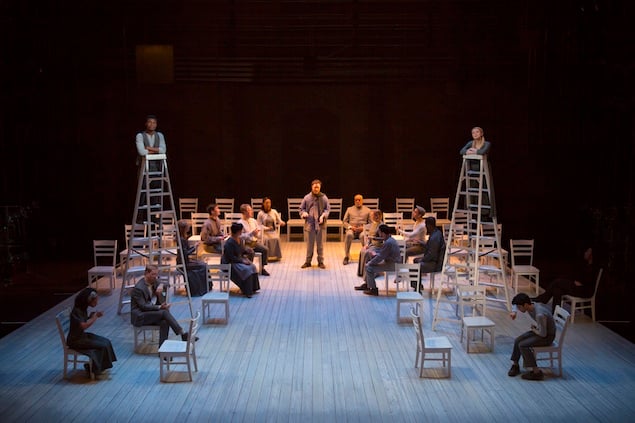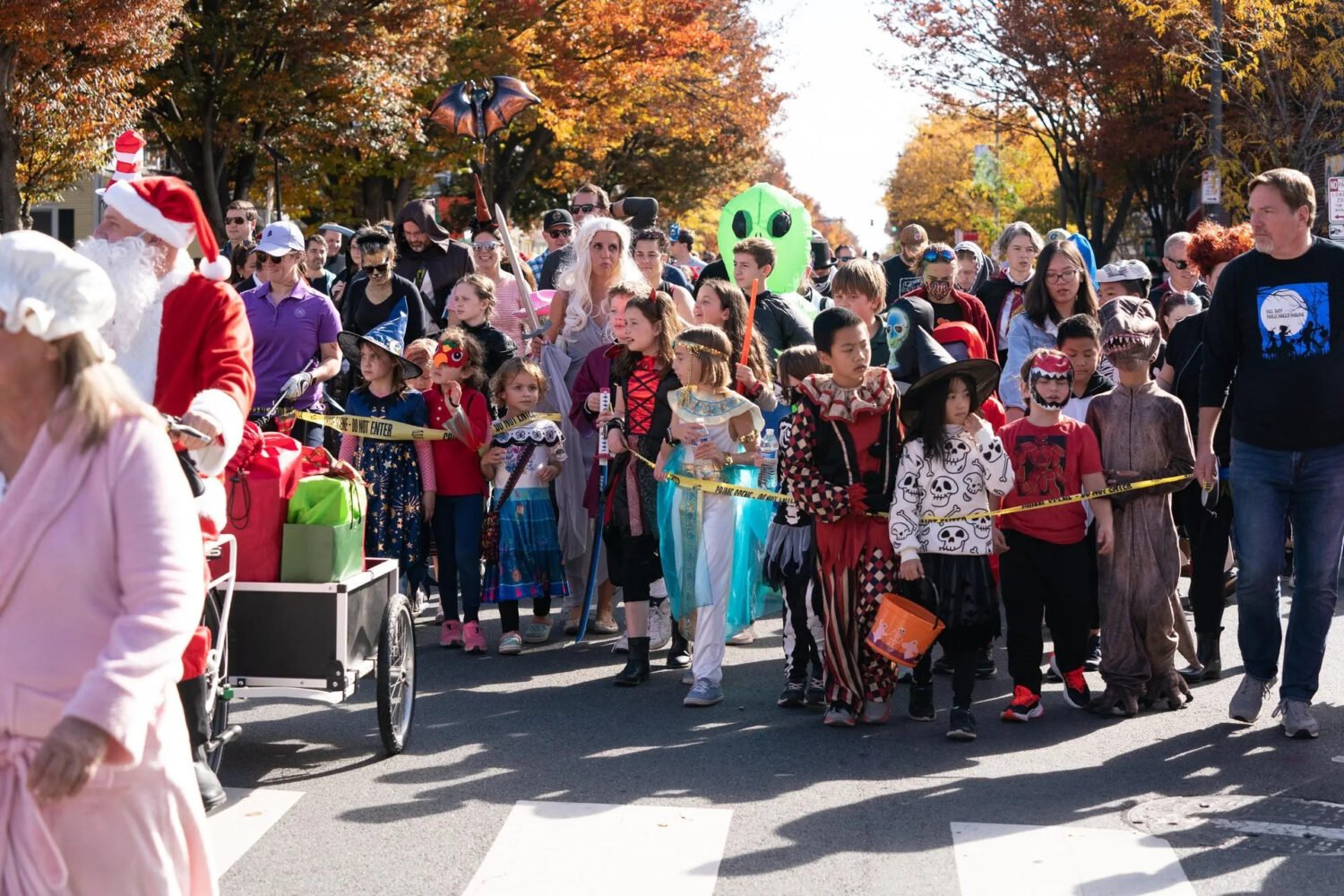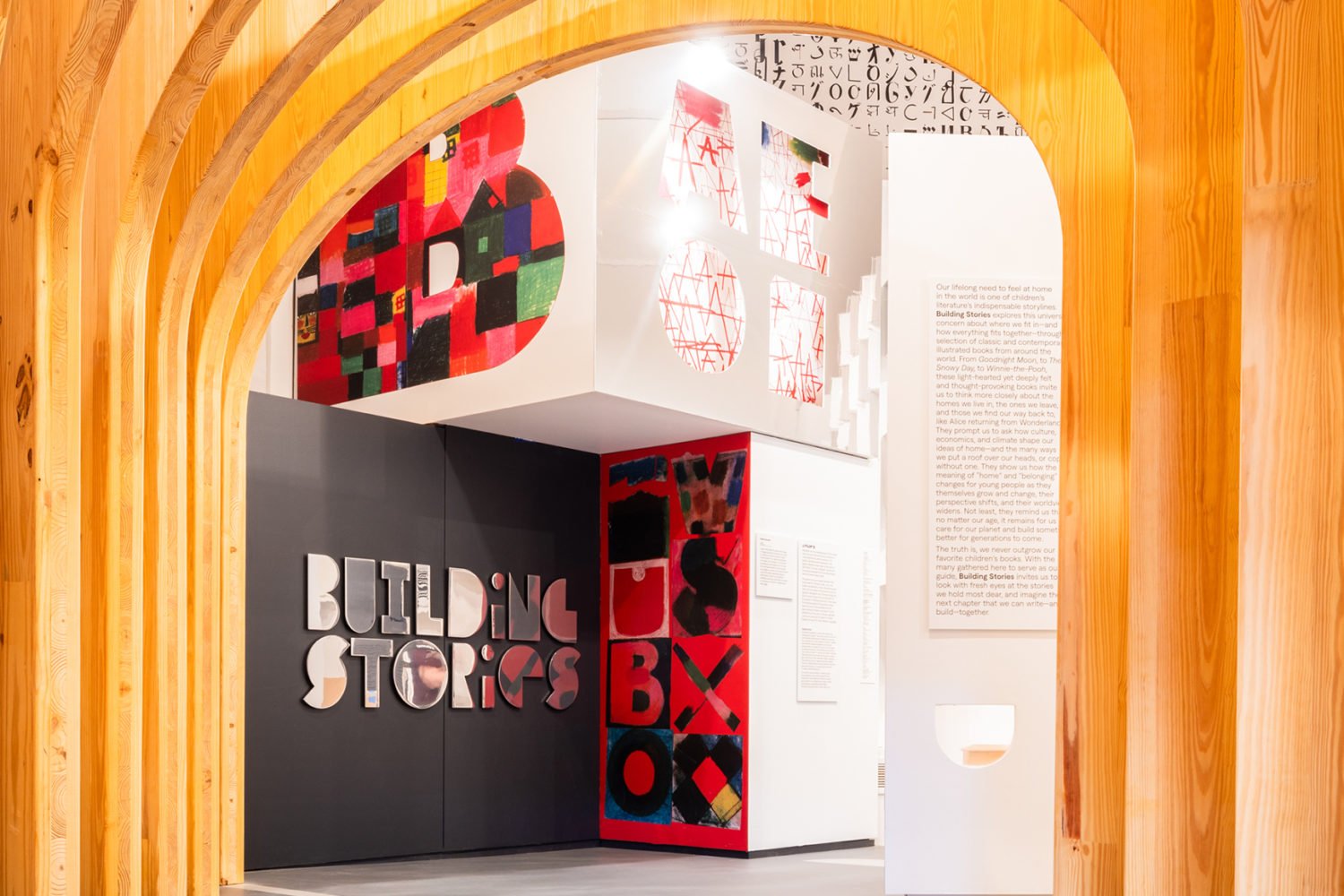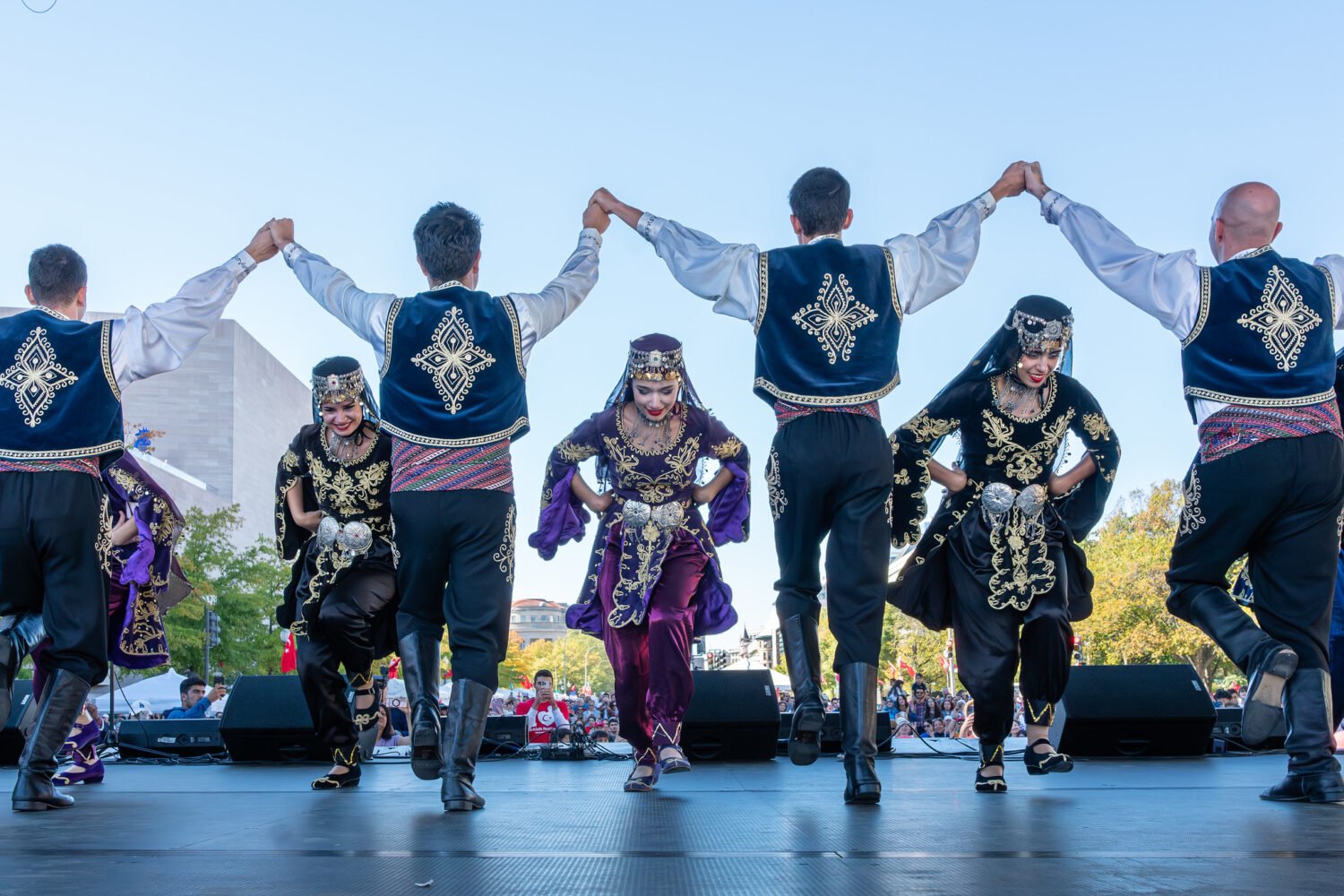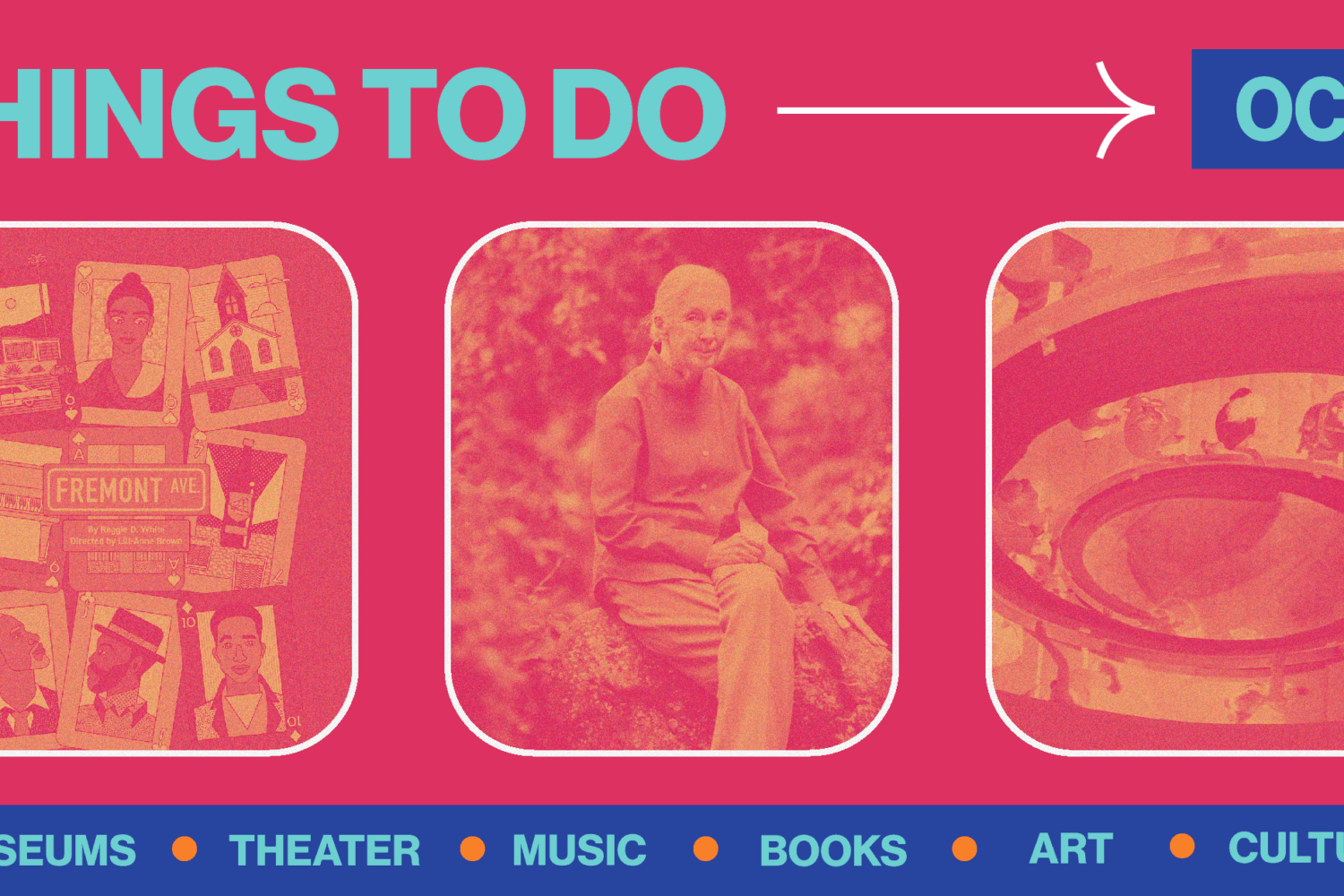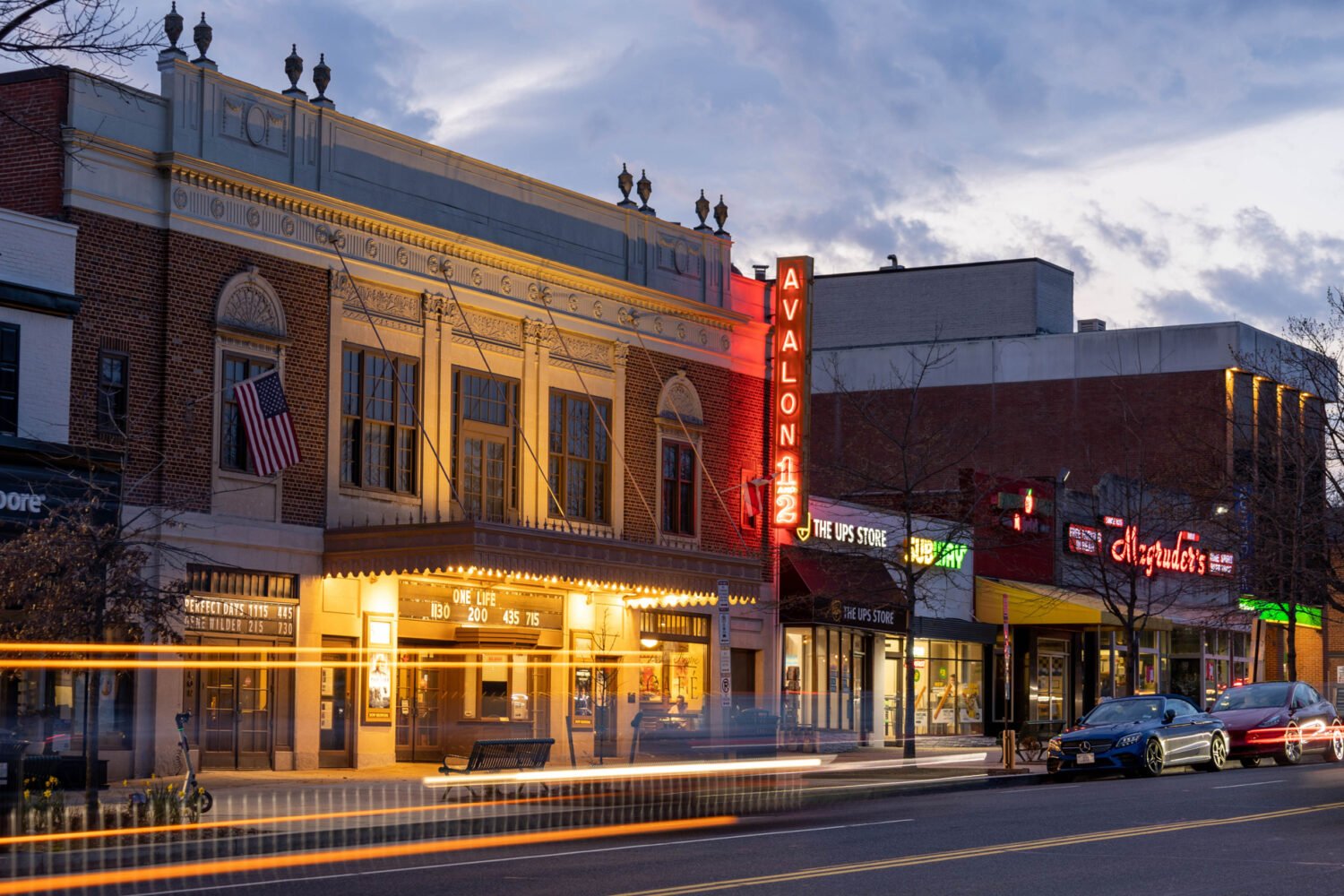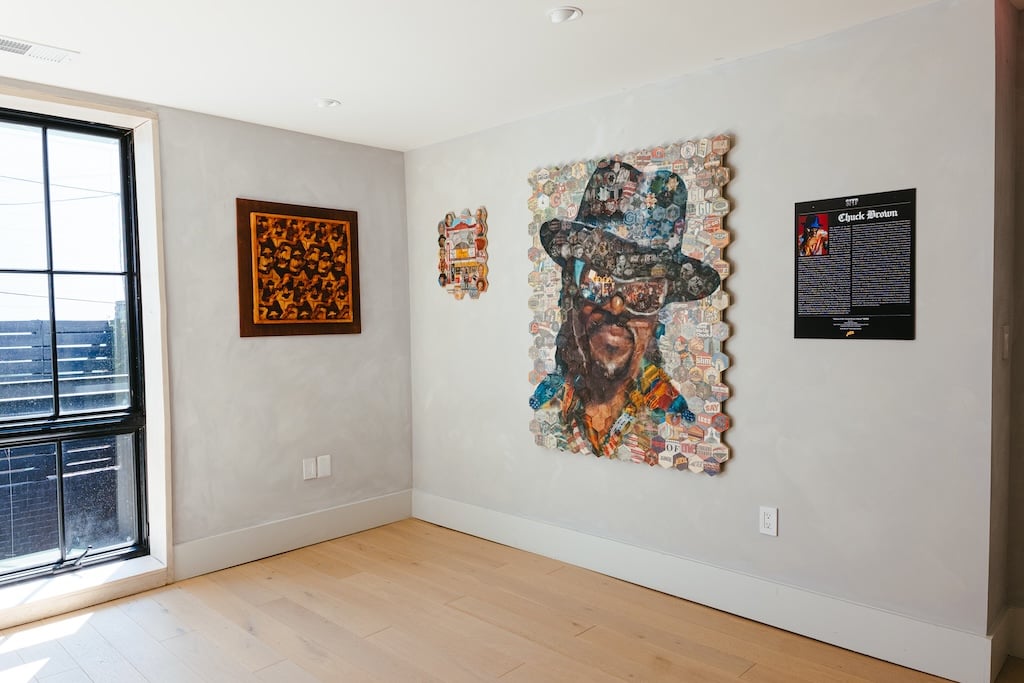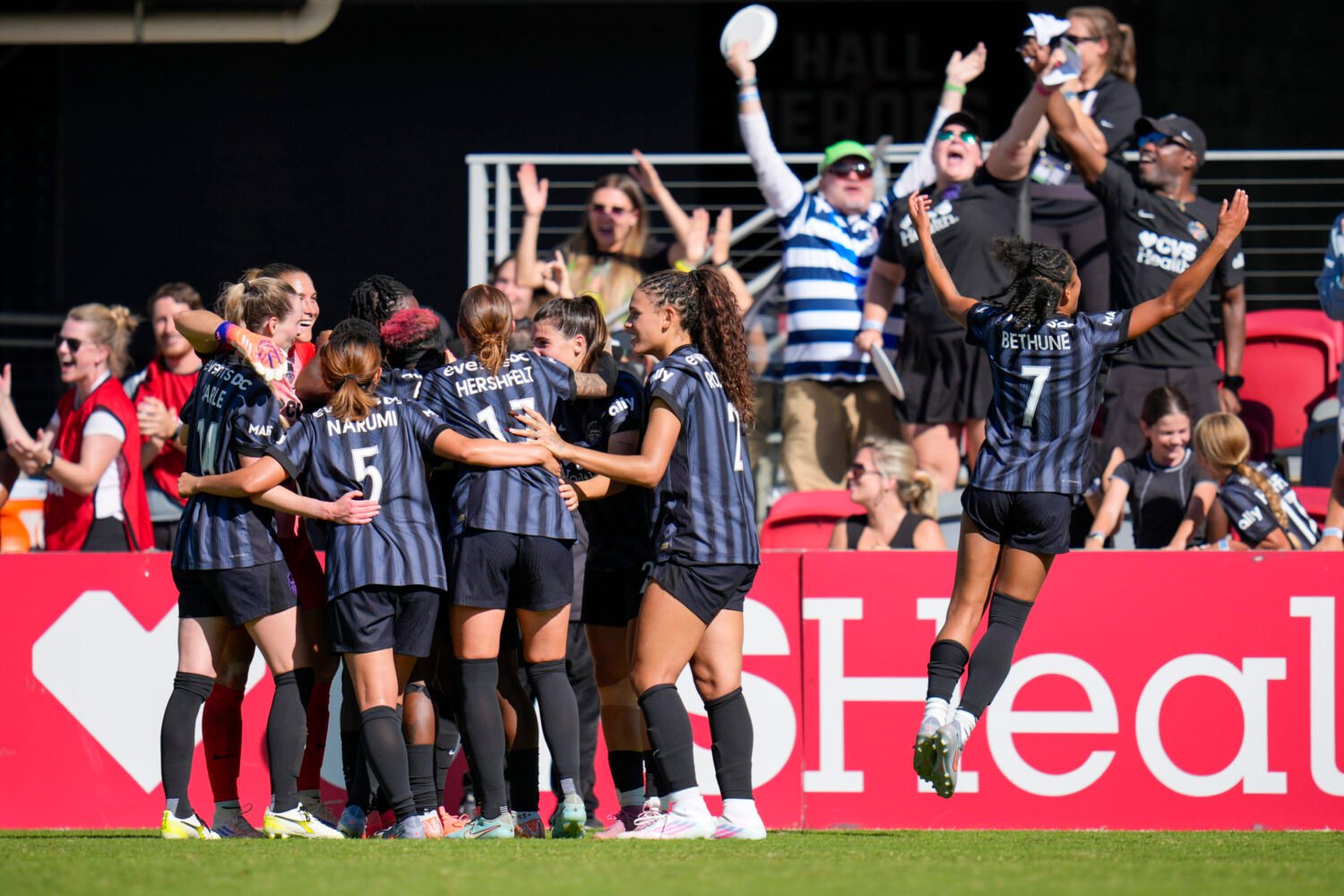
The third act of Ford’s Theatre’s production of
Our Town, playing through February 24, is visually and emotionally bracing—a blast of cool
air in an otherwise close environment. I won’t ruin the surprise, but director
Stephen Rayne and set designer
Tony Cisek manage to achieve a quite startling transformation behind the curtain, and the effect
is invigorating.
Thornton Wilder’s play about existential questions explored
through the prism of small-town
New Hampshire turns 75 today, and is apparently still as
popular as
ever.
In this anniversary production at Ford’s, Rayne—who told
The Washingtonian he’d never seen a production of
Our Town before staging his own—has attempted to give the show a fresh, contemporary perspective.
While this production’s creative elements are clever (the use of mime, choreographed
by Happenstance Theater’s
Mark Jaster, is particularly effective in creating vivid scenes out of little more than a handful
of white chairs) the power of the third act comes a little too late to temper the
show’s folksiness.
In Wilder’s meta-theatrical universe, the stage manager acts as a Charon of sorts,
introducing Grover’s Corners, spouting facts about the place (4 percent of its 2,000
or so residents are Socialists, and only a handful are drunks), and ferrying the actors
and the audience between different times and scenes. Typically played by an older
white man, Raynes has cast the mononymous African-American actress
Portia in the role, aiming to reflect a more contemporary America. It’s an interesting tweak,
but the possibilities brought up by it—and by the rest of Raynes’s colorblind casting—are
never fully explored.
Grover’s Corners embodies golden-age Americana, at least until the final act, which
is possibly why the play remains so popular. Young teenagers George Gibbs (Nickolas Vaughan) and Emily Webb (Alyssa Gagarin) have a sweet courtship involving strawberry sodas and stargazing before they marry
at 17, Doc Gibbs (James Konicek) tends to the town selflessly, the milk is delivered by horse, and nobody locks their
doors at night. The lone dark—and surprisingly funny—note is
Tom Story as Simon Stimson, a histrionic choirmaster who’s also one of the few town drunkards.
Wilder’s characters are fairly insipid, despite their universal goodness. Mrs. Gibbs
(Jenn Walker) just wants her husband to take a vacation, while the only less-than-idealized character
is
Erin Driscoll’s town gossip. With the exception of the stage manager, the characters are outfitted
by designer
Kate Turner-Walker in Quaker-like long clothes in dove gray, which only serve to undermine their individual
characteristics (Portia wears a black sweatsuit, which feels glaringly modern by comparison).
The deepest element at play in act one is Konicek’s booming speaking voice, which
has a really lovely timbre to it.
The nostalgic appeal of Grover’s Corners is undercut by the tremendously effective
final act, in which it all becomes clear that death is the epilogue not even the stage
manager can cut. Cisek’s Escher-like set provides a sweeping sense of the inevitability
of it all, while the characters now feel spookily robotic and otherwordly. It’s a
powerful end to a play that Wilder wanted to be deeply philosophical, but it feels
at odds with the Hallmark-movie idealism of the first two acts. Seventy-five years
after the play first debuted, America is an impossibly different place. Rayne’s casting
reflects that fact, but the rest of the play feels irretrievably out of touch.
Still,
Our Town is handsomely staged, and its cast is effective especially in the moody, romantic
scenes in which they sing in unison. A funeral sequence towards the play’s end is
beautifully creative, and the sound effects—created by the actor themselves—are evocative.
In Grover’s Corners, theater is a time capsule, preserving the hopes and dreams and
silly schemes of people living over a century ago. It’s just hard not to wish it had
more insight to offer a 2013 audience.
Our Town
is at Ford’s Theatre through February 24. Running time is about two and a half hours,
with two intermissions. Tickets ($20 to $62) are available via the theater’s website.

